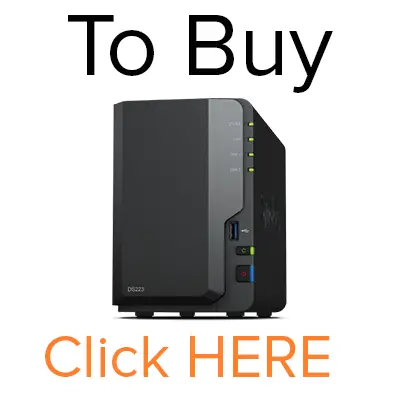Jump Ahead Too
ToggleExploring Synology NAS: Docker Support, Reddit Community, 2023 Models, and More
Which Synology NAS Support Docker?
Docker support is a valuable feature for those looking to run containerized applications on their Synology NAS. Many modern Synology NAS models offer Docker compatibility. To check if your specific Synology NAS supports Docker, you can visit the official Synology website or refer to the product specifications for your NAS model. Models like the DS220+, DS920+, and DS1621+ are known to support Docker.
Which Synology NAS Reddit Communities are Active?
If you’re looking to connect with fellow Synology NAS enthusiasts or seek advice, Reddit has active communities such as r/synology and r/homelab. These communities provide valuable insights, troubleshooting assistance, and discussions related to Synology NAS devices. Participating in these communities can help you learn from others’ experiences and stay updated on the latest developments.
Which Synology NAS Models Are Expected in 2023?
While I don’t have access to information beyond my knowledge cutoff date in September 2021, Synology typically announces new NAS models regularly. To stay updated on upcoming releases for 2023, keep an eye on Synology’s official website, news releases, and technology forums for any announcements regarding new NAS models and their features.
What Is a Synology NAS Drive?
A Synology NAS drive refers to the hard drives or solid-state drives (SSDs) installed in a Synology NAS device. These drives are used to store and manage data on the NAS. Synology NAS drives are essential components that determine the storage capacity, performance, and data integrity of the NAS. Synology provides compatibility lists specifying compatible drive models for each NAS device.
What Is Synology NAS Data Scrubbing?
Data scrubbing is a maintenance process that helps maintain the integrity of data stored on a Synology NAS. It involves regularly checking and repairing data inconsistencies on storage volumes. Synology NAS devices perform data scrubbing automatically in the background to identify and correct potential data errors, thus ensuring the long-term reliability of stored data.
What Is Synology NAS Used For?
Synology NAS devices are versatile and serve various purposes. They are used for:
- Data Storage: Storing files, documents, photos, and videos.
- Data Backup: Creating backups of critical data.
- Media Streaming: Hosting and streaming multimedia content.
- Remote Access: Accessing files and applications remotely.
- Surveillance: Running surveillance camera systems.
- Web Hosting: Hosting websites and web applications.
- Virtualization: Running virtual machines (on certain models).
- Docker Containers: Running containerized applications.
Synology NAS devices are designed to cater to both personal and business needs, offering a wide range of applications and services.
What Operating System Does Synology NAS Use?
Synology NAS devices run on the DiskStation Manager (DSM) operating system. DSM is Synology’s proprietary operating system specifically designed for NAS management. It provides a user-friendly web-based interface for configuring, managing, and accessing the NAS and its features.
How Can I Find My Synology NAS?
To locate your Synology NAS on your network, you can use the Synology Assistant desktop utility provided by Synology. Alternatively, you can access your NAS by entering its IP address or hostname in a web browser. The NAS’s hostname is often “nasname.local” by default, but you can customize it in the NAS settings.
What Should I Install on My Synology NAS?
The choice of applications to install on your Synology NAS depends on your specific needs. Some popular applications include:
- File Station: For file management and sharing.
- Hyper Backup: For data backup.
- Synology Drive: For file synchronization.
- Surveillance Station: For video surveillance.
- Docker: For running containerized applications.
- Virtual Machine Manager: For running virtual machines (on compatible models).
Consider your requirements and explore the Synology Package Center to install the apps that best suit your needs.
When Will New Synology NAS Models Be Released?
The release dates for new Synology NAS models vary, and they typically depend on Synology’s product development and launch schedule. Synology tends to introduce new models regularly, so it’s advisable to keep an eye on official announcements and technology news for updates on the release of new Synology NAS models.
Are Synology NAS Reliable?
Yes, Synology NAS devices are known for their reliability. Synology achieves this through the use of quality components, regular software updates, redundancy options like RAID, and excellent technical support. Synology NAS units are trusted for their ability to perform reliably in various scenarios, from basic file storage to critical business applications.
How to Sync Synology NAS?
To sync data with your Synology NAS, you can use Synology’s synchronization tools such as “Synology Drive” or “Cloud Station Suite.” These applications allow you to sync files and folders between your NAS and your devices, ensuring that your data is up-to-date and accessible from anywhere.
Where Is My Synology NAS?
To locate your Synology NAS on your network, you can use the Synology Assistant desktop utility, which scans your local network for NAS devices and displays their details. Alternatively, you can access your NAS by entering its IP address in a web browser, allowing you to manage and access it from your computer.
Which Synology NAS Can Run Docker?
Many Synology NAS models support Docker. Some popular models with Docker compatibility include the DS220+, DS920+, DS1621+, DS918+, DS1019+, and more. Ensure that you check your specific NAS model’s compatibility on the Synology website or in the product specifications to confirm Docker support.
Which Synology NAS Support Virtual Machines?
Certain Synology NAS models support virtualization through the Virtual Machine Manager (VMM) package. Models like the DS920+, DS1621+, and others are equipped to run virtual machines, allowing you to run multiple operating systems and applications in isolated virtual environments.
In conclusion
Synology NAS devices offer a wide range of features and capabilities, including Docker support, versatile applications, and reliability. Stay informed about the compatibility and features of your specific NAS model to make the most of your Synology NAS experience.

